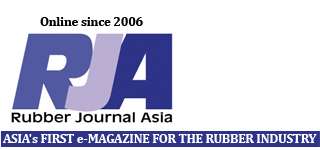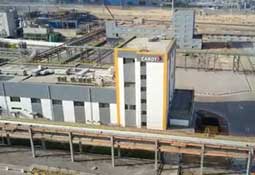US carbon black maker Cabot Corporation says it is joining other leading companies in the global movement to align its sustainability agenda with the Paris Climate Agreement to achieve net zero emissions by 2050. This ambition demonstrates Cabot’s ongoing commitment to protect the planet and further the company’s robust sustainability journey.
“As a leader in the performance materials and specialty chemicals industry, we are committed to building upon the strong foundation of our long-standing sustainability program to support the transition to a lower carbon economy,” said Sean Keohane, president and CEO. “Throughout the years, we have focused on reducing our impact and our net zero ambition is a natural progression in our sustainability journey. We believe that supporting the Paris Climate Agreement is not only the right thing to do, but it will also strengthen our competitive position and create value for our stakeholders as we advance our efforts to achieve a lower emissions environment.”
Cabot’s purpose is to create innovative materials that improve everyday life and enable a more sustainable future. The company is committed to reducing its environmental impact, while supporting its customers with innovative materials to help them achieve their sustainability goals. As part of Cabot’s 2025 Sustainability Goals, the company established a goal to reduce its greenhouse gas emissions intensity by 20% using 2005 as the baseline. To date, Cabot has realized 77% of this goal. To further this goal and achieve the ambition of net zero by 2050, Cabot intends to follow the methodology established by the Science Based Targets Initiative (SBTi) to set interim greenhouse gas reduction targets.
The transition to a lower carbon economy will take time and require collaboration, innovation and supportive public policy. Cabot’s path to reducing its footprint will be a continuous improvement journey that includes investments in technology, infrastructure and people. Throughout the process, Cabot will engage and collaborate with its suppliers, customers and other stakeholders to help achieve its goals. Cabot expects the technical path will include optimizing existing technologies, improving energy efficiency, maximizing the use of renewable energy and advancing technology innovations.
“Our current efforts to reduce greenhouse gas emissions include investments to increase process yields and recover waste heat from our process,” said Martin O’Neill, senior vice president, Safety, Health, Environment & Sustainability. “Looking ahead, we are excited about the future opportunities to further reduce our impact by increasing circularity across our product portfolio. Furthermore, we support the recommendations of the Task Force on Climate-Related Financial Disclosures (TCFD) to increase transparency around climate actions, opportunities and progress.”

